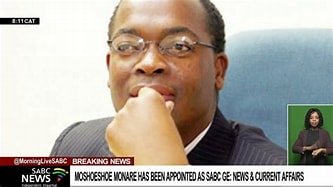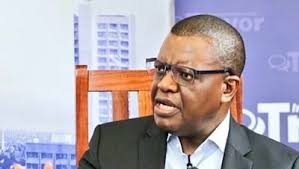Leaked audio of Ramaphosa gets SABC Editor called in for state security interview

SABC BOSS: Moshoeshoe Monare
JOHANNESBURG — In a startling turn of events, Moshoeshoe Monare, the editor-in-chief of the South African Broadcasting Corporation (SABC), has been directed to undergo stringent security vetting, including a polygraph test. This follows a leaked audio where President Cyril Ramaphosa critiqued local media coverage ahead of South Africa’s forthcoming general election on May 29, 2024.
A senior official from the State Security Agency (SSA) reportedly contacted Monare on April 18, instructing him to complete the top-level security procedures. The vetting request comes in the wake of President Ramaphosa’s remarks during an African National Congress (ANC) election committee meeting on April 11, captured in a recording where he expressed that local media should not be negative toward the governing party.
In response, the Committee to Protect Journalists (CPJ) voiced deep concerns on Monday. “The timing and nature of this vetting process are suspect, coming just after the President’s negative comments about media freedom,” said Angela Quintal, CPJ’s Africa Program Coordinator. “It’s crucial that the SABC maintains its editorial independence and does not become a mouthpiece for the ANC.”
According to Monare, who spoke in an SABC TV interview and was reported by City Press, the sudden requirement for a polygraph test was unexpected, especially since he was already vetted in 2020 without such demands. “The request for additional vetting now, so close to the election, is alarming and seems intended to intimidate,” Monare said.
The SSA claims that the vetting is standard procedure for individuals in sensitive positions, as Monare is also the SABC’s Group Executive of News and Current Affairs. Yet, the introduction of a polygraph test, usually reserved for top security officials, raises concerns among media watchdogs and civil rights groups about the potential misuse of security measures to exert pressure on the media.
Despite assurances from presidential spokesman Vincent Magwenya that the vetting is routine and not targeted, the journalism community remains skeptical. “Using state security tools in such a manner could threaten the freedom of press and has no place in a democratic society,” stated Intelwatch’s Heidi Swart, echoing a sentiment widely shared among defenders of press freedom.
The SSA’s approach comes at a critical time as public trust in the government is wavering with the ANC’s popularity seeing a significant decline, as per a recent Ipsos opinion poll.
The SABC has stated that the vetting process is a standard requirement and reiterated that all its executives undergo similar checks. However, the inclusion of a polygraph test has not been uniformly applied in the past, adding to the controversy surrounding the current enforcement.
As South Africa heads towards a pivotal election, the balance between national security and preserving journalistic independence continues to be a contentious issue, highlighting the delicate interplay between governance and media in the country’s evolving democratic landscape.







